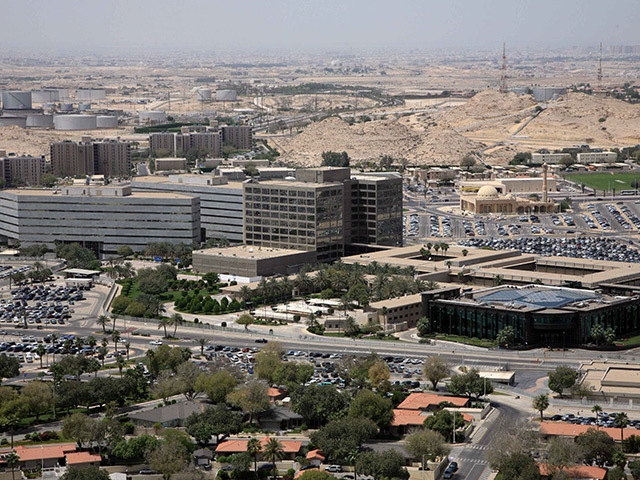
Oil giant Saudi Aramco must play by the rules if it picks the City for its two trillion dollar (£1.54 trillion) flotation and any attempt to grant it special concessions would be “highly inappropriate”, a top investment fund has warned.
Aramco, the world’s biggest oil firm, is preparing to list around 5% of its shares and London is vying with other major financial capitals to secure the international side of the momentous deal.
However, Financial Conduct Authority (FCA) rules suggest that companies looking to list on the London market should sell at least 25% of their shares, in order to warrant a “premium” status.
Ashley Hamilton Claxton, corporate governance manager at Royal London Asset Management, said the 25% threshold should be strictly enforced.
“Any attempt to bend the listing rules in order to facilitate the initial public offering of Saudi Aramco is highly inappropriate and flagrantly ignores the principles which the UK’s listing rules were designed to defend,” she said.
Although the listing would clearly be a “prize asset” for the London Stock Exchange, Ms Hamilton Claxton said that an attempt to list just 5% of the company “flies in the face of what is acceptable”.
“(The rules) should not be tampered with, no matter how attractive the prize.”
A London listing would be a major victory for the City, given the uncertainty created by the Brexit vote, and LSE boss Xavier Rolet no doubt had his eyes on that prize when he accompanied Prime Minister Theresa May on a recent high-profile trip to Riyadh.
The flotation, which could value Aramco at two trillion US dollars, would make it the largest IPO in history.
The FCA rulebook states that exceptions can be made to the 25% minimum level rule, provided liquidity is not impacted by selling a smaller stake.
In the case of Aramco, it could be possible to bypass the rules, given even a 5% slice could be worth as much as 100 billion US dollars (£77.2 billion).
Ms Hamilton Claxton said that she accepted the FCA has the power to make exceptions in certain circumstances.
But she argued that the 25% threshold is a norm established to maintain the integrity of the market, and that making special exemptions could lead to “a slippery slope”.
She cited the case of Kazakhstani mining group ENRC, which was listed on the London Stock Exchange with a small free float – significantly below 25%.
The company ended up being delisted amid allegations of corruption in one of the worst corporate governance scandals to hit the Square Mile, with its ousted board member Ken Olisa describing the firm as “more Soviet than City”.
Such cases demonstrate the need to comply with the rules, irrespective of the size of the company, Ms Hamilton Claxton said.“If this deal is forced through without adherence to the UK’s listing rules, there is a real danger further listings could emerge where large international firms are able to access UK capital markets without playing by the rules.”
She also pointed out that given the size of Saudi Aramco, even a 5% listing would mean the stock would become a significant part of many passive equity funds.
“The pension funds of millions of British savers could end up holding Aramco shares without many of the governance protections usually available to UK investors,” she added.
“We will be lobbying strongly against any concessions being granted.”
Recommended for you
